Cape Verde. Building its own future.
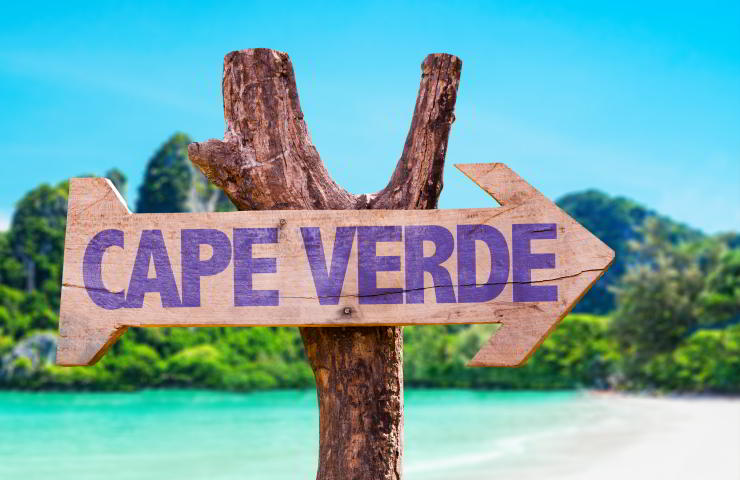
When Cape Verde seceded from Portugal, there were many voices questioning its stability. Its commitment to education, healthcare, infrastructure, and tourism, combined with the consolidation of democracy and political change, has transformed Cape Verde into a point of reference in Africa and beyond.
It was July 5, 1975, when Cape Verde gained independence from Portugal, ushering in a new chapter in its history. A moment filled with hope and challenge, it marked the beginning of a unique political trajectory that, over the course of nearly five decades, would transform the archipelago from a single-party system to a vibrant and consolidated multiparty democracy.
Cape Verde’s political evolution is a remarkable example in Portuguese-speaking Africa, characterised by a pragmatism that enabled a peaceful transition and the creation of solid democratic institutions suited to the unique characteristics of a small island nation with limited resources.
The years following independence were characterised by the dominant presence of the African Party for the Independence of Guinea and Cape Verde (PAIGC), which led the fight against colonialism. Socialist ideology and the project of union with Guinea-Bissau, with which it shared the same liberation movement, shaped the early years. Led by Aristides Pereira, the Marxist-Leninist PAIGC quickly consolidated its power, establishing itself as a single party, a trend common to many newly independent African countries.
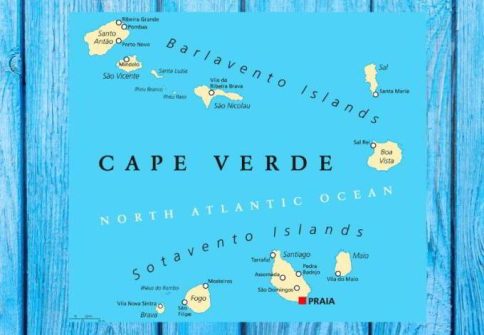
Cape Verde Political Map. 123rf
The decision to adopt this model in 1976 was motivated by the need to consolidate national unity and mobilize essential resources for development in a context of extreme poverty and vulnerability, further exacerbated by periodic droughts. The PAIGC, renamed the African Party for the Independence of Cape Verde (PAICV) after its split with Guinea-Bissau in 1980 following João Bernardo Vieira’s coup against Luís Cabral, focused its efforts on state-building and the implementation of social policies. Significant progress was made in the areas of education, healthcare, and access to water, thanks to massive literacy campaigns and the construction of basic infrastructure, which led to a marked improvement in social indicators compared to the colonial era.
Alongside these advances, the single-party model resulted in the suppression of political freedoms and the absence of pluralism. Opposition was non-existent, and decisions were centralised. However, the PAICV regime did not stand out for the violent repression that characterised other similar regimes in Africa.
On the contrary, it maintained a relatively moderate stance that favoured democratic transition.
Transition to democracy
The 1980s were a period of growing disillusionment with socialist models in Africa and the rest of the world. Cape Verde was no exception. The planned economy failed to generate the growth needed to overcome structural difficulties, and dependence on foreign aid was a reality. The fall of the Berlin Wall in 1989 and the end of the Cold War accelerated internal and external pressures for greater political and economic openness. Voices in favour of pluralism and reform began to be heard, albeit timidly, both within the party and in civil society.
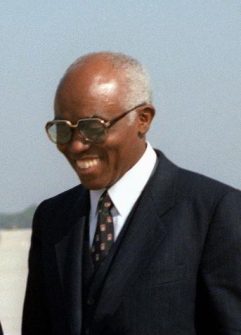
Aristides Maria Pereira was the first President of Cape Verde, serving from 1975 to 1991. He initiated a process of openness. Photo: Maria Briestline
Cape Verde’s transition to democracy, characterised by a peaceful and negotiated nature, is one of the most significant chapters in its political history. Unlike many other countries, where democratization was imposed by external pressure or popular uprisings, in Cape Verde the initiative largely came from the PAICV itself.
In 1990, then-President Aristides Pereira and the party leadership, aware of global changes and the limitations of the one-party system, initiated a process of openness. In February of that year, the PAICV Central Committee announced its decision to transition to a multiparty system, a bold and innovative step for the time. This decision was followed by a constitutional revision that repealed the article establishing the PAICV as a single party. The transition was formalised with the holding of the first multiparty elections in January 1991. These elections saw the emergence of a new political actor: the Movement for Democracy (MpD), a coalition of intellectuals, PAICV dissidents, and diaspora figures who organised to advocate for pluralism and change. Led by Carlos Veiga, the MpD presented itself as an opposition force, promising a market economy and a more liberal state.
The legislative elections of January 13, 1991, represented a fundamental turning point. The MpD won a landslide victory, winning a majority of seats in Parliament, ousting the PAICV. Shortly thereafter, in February, the presidential elections confirmed the change: the independent candidate supported by the MpD, António Mascarenhas Monteiro, defeated Arístides Pereira.
A period of reform
Since 1991, Cape Verdean politics has been characterised by the democratic alternation between the MpD and the PAICV and the consolidation of democratic institutions. With the MpD in government, under the leadership of Prime Minister Carlos Veiga, Cape Verde embarked on a period of reform. The economy was liberalised, state-owned enterprises were privatised, and the country opened to foreign investment. Policies were implemented to promote the private sector and tourism, which became a cornerstone of the Cape Verdean economy. The MpD also promoted administrative decentralisation, creating local councils and strengthening civic participation at the local level.
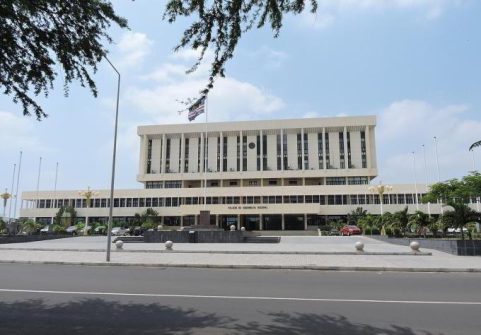
Praia. House of Parliament. A constitutional revision was made that repealed the article establishing the PAICV as the sole political party. CC BY-SA 4.0/ VIEX – Ernest Niedermann
Despite economic achievements, the 1990s were not without challenges. Structural reforms, while necessary, had a significant social impact, with rising unemployment and the population having to adapt to a new economic reality. The PAICV, in opposition, played a key role in monitoring and criticising a consolidated democracy.
The PAICV managed to recover and return to power ten years later, in 2001, with the victory of José Maria Pereira Neves in the legislative elections and Pedro Pires in the presidential elections.
While continuing many of the economic liberalization policies, the PAICV emphasised social policies and the fight against poverty. The Pereira Neves government committed to economic diversification, infrastructure development, and the promotion of Cape Verde as a service hub for West Africa. Relations with the European Union were deepened with the signing of the Special Partnership, reflecting the country’s Atlantic and European vocation. The fight against crime and the promotion of security were also central.
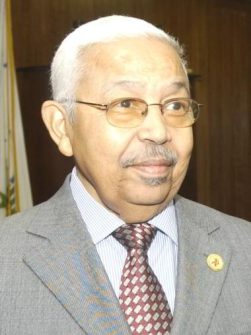
Pedro Pires, president of Cape Verde from 2001 to 2011. Photo: Ron Bennett
This period was characterised by significant economic growth, driven by tourism and remittances from the diaspora. However, the country continued to face challenges such as vulnerability to climate change, scarcity of natural resources, and the need to create skilled jobs for its youth.
In 2016, the MpD, led by Ulisses Correia e Silva, won the legislative elections and took over the government. The MpD promised more efficient management, reduction of public debt, improvement of the business environment, and investment in strategic sectors such as the digital economy and the blue economy.
The government of Ulisses Correia e Silva has faced significant challenges, such as the COVID-19 pandemic, which has had a devastating impact on the finances of Cape Verde, a country heavily dependent on tourism. Economic recovery and the ability to withstand external shocks have become a priority.
Policies to attract foreign investment and promote sustainable growth remain the primary objectives.
Cape Verde’s future
The 2021 legislative elections confirmed the MpD in power, albeit by a narrow margin, demonstrating the competitiveness of Cape Verde’s two-party system. In the 2021 presidential elections, José María Pereira Neves, former Prime Minister of the PAICV, was elected President of the Republic, succeeding Jorge Carlos Fonseca of the MpD and consolidating political coexistence and the separation of powers.
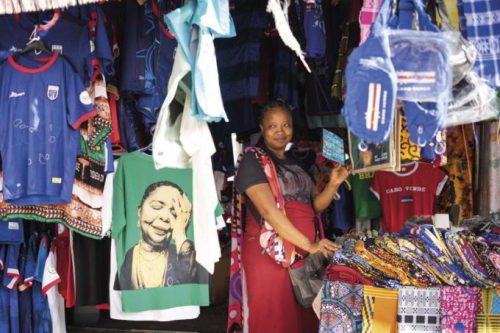
A seller of Cape Verdean promotional items at a stall in the Assomada market. Photo: Javier Sánchez Salcedo
Despite being a beacon of democracy in Africa, Cape Verde still faces significant challenges. Its economy, primarily based on tourism, is vulnerable to external shocks. Water scarcity and desertification pose constant threats, requiring investments in renewable energy and desalination technologies. High youth unemployment and the need to diversify the economy are ongoing concerns.
Governance in the archipelago is characterised by dialogue and consensus, although political polarization, common to mature democracies, is felt, especially during election periods. Civil society has played an increasingly important role in maintaining power and promoting social initiatives.
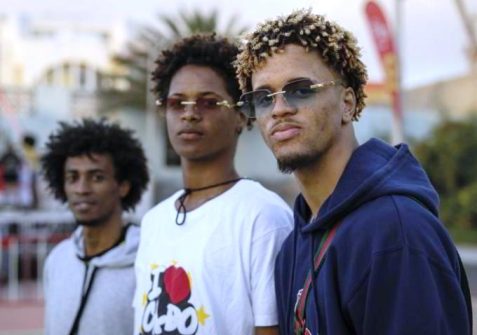
Three young people in the city of Mindelo. Photo: Javier Sánchez Salcedo
Cape Verde’s political evolution since 1975 is a success story. Transitioning from a newly independent nation with a one-party system to a robust democracy, Cape Verde has been internationally recognised for its stability and peaceful alternation of power. This achievement was possible thanks to an unwavering commitment to democratic governance, respect for freedoms, and the pursuit of development that benefits all citizens. Cape Verde’s future, while presenting significant challenges, rests on solid foundations. The resilience of its people, the maturity of its political class, and the strength of its democratic institutions are the pillars on which the archipelago can continue to build a prosperous and just future, establishing itself as a model of success in Africa and the world. Cape Verde’s journey is a testament to the ability of a small nation to forge its own destiny, overcoming adversity and embracing the values of democracy and freedom. (Open Photo: ESB Professional)
André Amaral



